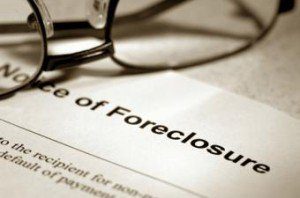 Following the Recession, many foreclosure-affected homeowners may have not been able to participate in the 2012 election, according to a study conducted by researchers at UW-Milwaukee and Marquette University. The study found that homeowners who lost their home following the Great Recession or homeowners facing crisis-related foreclosure were less likely to head to the polls.
Following the Recession, many foreclosure-affected homeowners may have not been able to participate in the 2012 election, according to a study conducted by researchers at UW-Milwaukee and Marquette University. The study found that homeowners who lost their home following the Great Recession or homeowners facing crisis-related foreclosure were less likely to head to the polls.
According to the study, voting not only declined by individual homeowners, but entire neighborhoods hit by foreclosure may be affected.
“This means that elected officials were not hearing from constituents most directly affected by the foreclosure crisis, effectively quashing a very real issue for most voters,” said Paru Shah, UWM Associate Professor of Political Science.
“Rather than being a mobilizing force, the study’s results pointed to this idea that people facing insecurities didn’t have the efficacy to go to the polls,” said Amber Wichowsky, an Associate Professor at Marquette.
Additionally, the study found that foreclosures impacted political turnout regardless of race or income level, and was unrelated to affected homeowners’ likelihood of voting in previous elections.
A similar study from the University of California Riverside’s Vanesa Estrada-Correa and Martin Johnson, revealed a similar result for the 2008 presidential election: foreclosure rates and foreclosure crisis are associated with reduced political involvement.
“There’s been a lot of research on the positive side of the relationship, but not a lot of research on the negative side, on what happens when people are dislocated.” Johnson said.
According to the study, neighborhoods with very low foreclosure rates saw about a 0.2% drop in turnout below what was expected, and those with high foreclosure rates saw a decrease of around 1%. The study also notes found that homeowners are not just individually affected: communities with high rates of foreclosure saw overall drops in voter turnout in 2008.
“Given the relationship between the foreclosure crisis and political participation, this research suggests the need for further investigation,” the study says. “We are especially interested in the potential that housing foreclosure further exacerbates ethnic and economic inequality due to the preponderance of subprime loans, distressed mortgages, and foreclosures in communities of color and lower socioeconomic status.”




